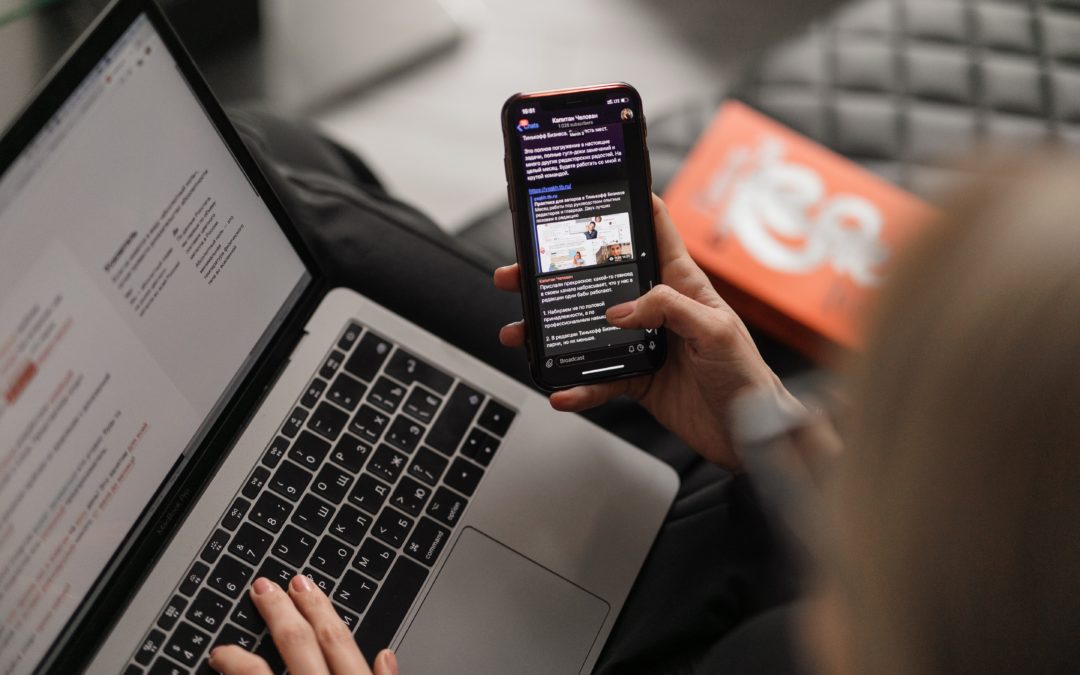
by Marra McDonald | May 30, 2023 | Uncategorized
We are always looking for ways to improve our lives and how we accomplish things, and the healthcare industry is no different. In fact, patients in this industry are constantly looking for ways to improve their health on their terms. Read on to learn why the future of healthcare should be primarily focused on customer service.
1. Patients Determine the Future of Healthcare
Take a look at any industry… what is the greatest determining factor of whether a product or company succeeds? Whether they have the customers to fund it.
The same can be said about the future of healthcare. Whether a patient uses or returns to your facility depends on a number of factors: distance, cost, bedside manner, etc. The overarching category is customer service. This means that your facility’s ability to grow is based on how it is viewed by the patients who visit it. Good experiences lead to better reviews, higher communication between patients and doctors, and an overall increase in patients.
2. Growing Competition
Another aspect facilities need to be aware of is the amount of growing competition in the healthcare space. Chief Healthcare Executive explains: “Health systems need to act with urgency in improving the consumer experience, since hospitals are facing growing competition in the healthcare market,” said Mark Sevco, president of UPMC Hospitals.
What does this mean for your facility? In order to become the future of healthcare, you must stay ahead of the competition, especially if you are located in highly-populated locations.
3. What We Know About Healthcare Patients
Lastly, to understand how to move forward in healthcare, we have to understand what our patients want and need from us.
Patients today are cost-focused. With the current state of the economy, people are more cautious about where they spend their hard-earned dollars. They may even delay care if they do not deem it necessary.
Patients are also technology-focused. We live in a society where when people want something, they want it yesterday. They don’t want to call around, playing a back-and-forth game to set appointments or manage their prescriptions. They want to utilize the technology at their fingertips to get answers to their questions, make plans, and connect with their healthcare providers easily.
How Can You Become the Future of Healthcare?
In order to become the future of healthcare, you must take these three aspects into consideration. Your patients will either drive you forward or make your facility obsolete.
The best way to put your patients first is by utilizing a technology-based platform. This meets customers where they are on every level. They are provided better care, which means they are more likely to return. The facility stands out against the competition that does not have these measures in place. Lastly, utilizing a healthcare platform allows the patient to save costs on unneeded extra visits and get them answers quickly.
Notivate Health allows you to meet all of these needs and more. Utilizing this platform in your facility will ensure that you become the future of healthcare wherever you are located.
If you would like more information on how this platform can benefit you and your patients, contact us to schedule a demo today.

by Marra McDonald | Apr 17, 2023 | communication, Uncategorized
HIPAA compliance is essential for healthcare facilities. Staying compliant protects not only your providers and facility but your patients as well. This is why it’s important to understand exactly when lines have been crossed and you are no longer following HIPAA guidelines, along with the repercussions your facility could face. Here are 5 of the most common examples of HIPAA compliance violations and the fines that may be associated with these incidents.
Example 1: Mishandling Patient Information
One of the categories of HIPAA compliance violations that sums up a majority of the individual issues facilities face is mishandling patient information.
This could be anything from not properly disposing of old medical records to accidentally sharing someone’s information with the wrong patient. Most of these violations are the result of inattention or carelessness. However, in some extreme cases, you may find that staff or providers knowingly mishandle patient information.
The best way to prevent this HIPAA compliance violation is by keeping your staff well-trained and taking extra precautions whenever patient data is involved. Double-checking information before it is shared, sent, or disclosed to another individual is necessary. In addition, getting proper authorization to share protected health information only with patient-specified third parties is key.
Example 2: Not Taking Technology Precautions
Another big issue many facilities may face is not using the proper technology features to protect patient data. One area where this is essential is chatting or messaging patients about their care. For example, this article discusses how a HIPAA-compliant chat is necessary for speaking with patients.
Luckily, Notivate Health has a HIPAA-compliant chat feature that allows you to securely speak with your patients. Their data is end-to-end encrypted to ensure that no one else can access their private information.
Example 3: Lack of Proper Training
Simply not training your staff on the ins and outs of HIPAA is enough for a violation. Under HIPAA regulations, covered entities and business associates are obligated to offer HIPAA training to their workforce members who come into contact with protected health information (PHI). This implies that even modest medical practices must provide HIPAA training to their personnel. It is crucial for doctors to receive adequate training as well.The best thing you can do for your facility in order to assure HIPAA compliance is to ensure that your staff is adequately trained.
Keep your providers and staff up-to-date on any new HIPAA regulations. Review the HIPAA standards frequently. Complete audits of your own facility to ensure that everything and everyone is still HIPAA-compliant. This is the best and easiest way to prevent any issues in the future.
Example 4: Discussing Patient Information With Others
Sharing information with individuals not authorized by the patient to receive it, or with healthcare providers who are not involved in the patient’s care, is considered a HIPAA violation. To avoid this breach, it is essential to restrict discussions about the patient’s care to authorized representatives, the patient, and those who require the information to provide treatment. Maintaining this privacy is straightforward: ensure that conversations about patient care are only held between you, the patient, and their authorized representatives.
Example 5: Not Protecting Devices With Patient Information
It is essential to safeguard any device that grants access to patient information and health records, such as phones, tablets, and computers. Even accessing work-related emails on your phone may put PHI at risk. If a device holds protected health information, you MUST provide encryption. If the device is compromised and you are unable to provide evidence of encryption, it is necessary to adhere to the regulations of the HIPAA Breach Notification Rule and you could face significant fines.
In addition, protecting electronic devices, such as phones and laptops, from being stolen within a hospital is essential to prevent a potential breach of patient data. Theft of these devices containing PHI can lead to a significant violation of patient privacy and result in severe consequences, including hefty fines and loss of reputation for the hospital or healthcare organization. Thus, taking adequate security measures, such as implementing access controls, encryption, and physical security, is crucial to prevent theft and ensure the confidentiality, integrity, and availability of PHI.
HIPAA Compliance Violation Fines
By violating HIPAA, whether through one of the examples above or in another way, your facility may face hefty fines as a consequence.
For example, the American Medical Association shares the different ranges of fines that you may face depending on the type of violation. It could be anything from $100 for a mistake that was made unknowingly to over $60,000 for a violation that was made knowingly and not corrected in a specific amount of time.
However, regardless of the cost of the fine, your job as ahealthcare provider is to ensure that your patients’ information is secure. This ensures that they can trust you with whatever medical problems they may be facing now and in the future.
Notivate Health has developed its platform while considering HIPAA compliance. We created our chat features, customizations, and telehealth appointment software with a focus on ensuring the security of your patients. If you require further details on how Notivate Health can assist you with HIPAA-compliant text, chat, and email services, contact us today.

by Jeana | Apr 2, 2023 | Uncategorized
All healthcare facilities have them: missed appointments caused by patients who don’t show up when they’re scheduled to. However, many people may not understand that there is actually a cost associated with these missed appointments. Read on to find out the cost of missed appointments nationwide and the steps you can take to limit them in your facility.
The Actual Cost of Missed Appointments
As a healthcare provider, the time you spend with patients is crucial. Each provider can see only so many patients in a day or week, which means each time slot on your schedule is important. However, when patients are a no-show, it hurts not only the patient’s health but your facility’s income as well.
According to RoundTrip, missed appointments cost healthcare facilities approximately $150 billion each year. However, this isn’t the only cost of missed appointments you may face. Besides the money and time of your providers, it can also hurt your patients.
Just because a patient doesn’t show up for their appointment, it doesn’t mean they are feeling better or don’t have any health concerns. Most of the time, there are other reasons why the patient can’t make it to their scheduled appointment. This means they are missing out on the care they may need, leading to their overall health taking a toll.
Why Do Patients Skip Appointments?
There are a variety of reasons that your patients may not show up when they are scheduled to. A major reason is not having adequate transportation to get to their appointments. If they have no way of getting to the facility, there is no way they can keep a scheduled appointment.
Another reason could be not understanding why they need to keep their scheduled appointments. For example, if they did not receive clear instructions after being discharged or were unsure of what to look for regarding follow-up care, they may not think their appointment is a big deal. A healthcare follow-up survey can help uncover issues related to unclear instructions or confusing follow-up care. Notivate’s post-discharge surveys return results to your staff in almost real-time, so they can follow-up with patients who might not understand their post-discharge instructions.
Patients who do not understand the importance of follow-up care may not think their appointment is a priority and may skip it, which can lead to more serious health problems. If it isn’t a priority, other things such as work or family events may cause them to put their health at the bottom of their to-do list.
How You Limit the Cost of Missed Appointments in Your Facility
If you’re struggling with missed appointments in your facility, you could send automated appointment reminders via voice, text or email to patients. This makes the patient’s appointment a priority and prevents it from slipping their mind in exchange for something less important.
Another benefit of using appointment reminders is allowing the patient to cancel or reschedule with a simple text. By giving patients a chance to change their scheduled appointment without having to call your facility to do so, they will be less likely to become a no-show.
Notivate’s platform allows you to create a “waitlist” for patients needing an appointment. Using this feature, a patient in need can quickly fill a canceled appointment, and your facility doesn’t have to call patients to set it up!
Studies have shown that appointment reminders can significantly reduce missed appointments. For example, a study published in the Journal of General Internal Medicine found that sending appointment reminders via text message reduced no-show rates by 34%. Another study published in the Journal of Medical Internet Research found that email reminders effectively reduced missed appointments by 26%.
Overall, limiting the cost of missed appointments in your facility is much simpler than it may seem. By setting up automated systems, you could save your facility thousands of dollars in missed appointment costs and help more patients get the care they need.
If you’d like to learn more about how the Notivate Health platform can benefit your facility, book a demo today.
Photo by Pepi Stojanovski on Unsplash.



Recent Comments